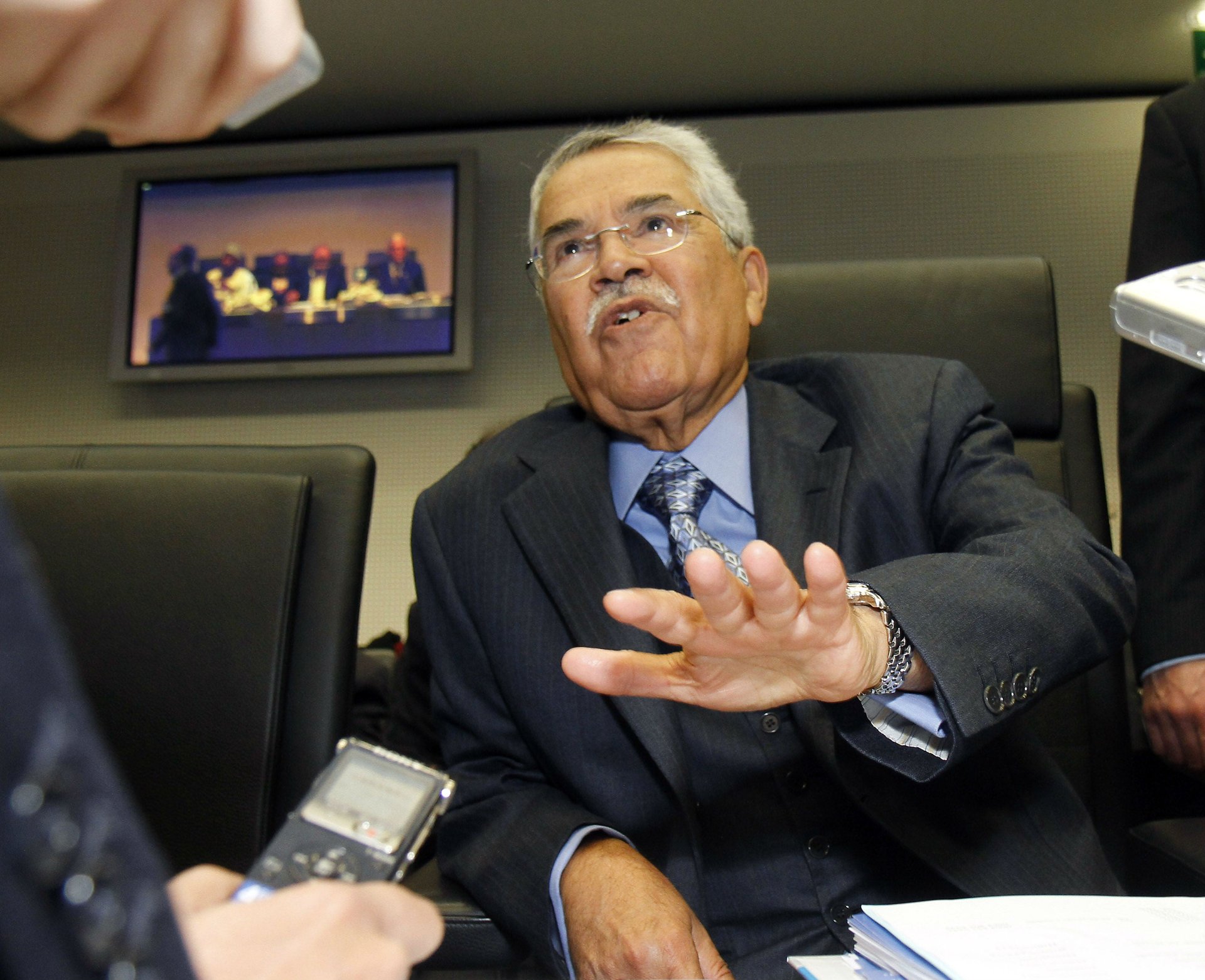Oil’s relentless policeman steps in to keep down prices
Oil broke to a four-month high of $117.95 a barrel Sep. 14, buoyed by the US Federal Reserve’s vow to inject cash into the financial system until further notice. But the first two days of this week, benchmark Brent crude futures plunged by 4%, to $112.03 a barrel. By Sep. 19, the price is falling again. Why the sharp turn?

Oil broke to a four-month high of $117.95 a barrel Sep. 14, buoyed by the US Federal Reserve’s vow to inject cash into the financial system until further notice. But the first two days of this week, benchmark Brent crude futures plunged by 4%, to $112.03 a barrel. By Sep. 19, the price is falling again. Why the sharp turn?
One reason is that traders think that oil demand (paywall) is falling, in part because of a plunge in Chinese exports and growth. But the main influence is Saudi Arabia, the self-appointed sheriff of the global oil market, which has stepped in to enforce its notions of the law. And the Saudi law is $100-a-barrel crude.
The Saudis, who are pumping oil at a 30-year high of about 10 million barrels a day, are attempting to unload even more petroleum onto the global market. Last week, Saudi energy minister Ali Naimi said that current oil prices are not justified by fundamental supply and demand. Traders appear to believe that the Saudis will keep pushing oil onto the market until Brent oil is back to its perceived equilibrium, which would be about $12 a barrel lower than where it closed yesterday.
If the Saudis succeed, they will make life difficult for countries like Russia, Iran and Venezuela, which require higher oil prices to balance the state budget. But they will also help the consumer economies of Japan, the US and Europe.